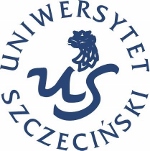Studies and researches
2/2025
The Fate of 21st Century Multilateralism
As a successful conclusion of the Doha Round is
highly improbable to materialize in the near future, preferential trade
agreements increasingly fill the vacuum which the currently dysfunctional
multilateral system leaves behind. Fuelled by various nations’ craving for
deeper integration, this most recent wave of preferential trade agreements has
been gathering force over the course of the 21st century. Including bilateral,
plurilateral and cross-regional initiatives as well as countries at different
levels of economic development, this movement has additionally been engendered
by supplementary motives such as the unprecedented economic growth in Asia, a
race for market access and the emergence of global production chains. Moreover,
I will provide some evidence whether preferential trade agreements represent
“stepping stones” or “stumbling blocks” in the construction of the multilateral
trade order. Anyway, the WTO is in desperate need of fundamental reform in
order to retain its raison d'être and play a meaningful role in the long term.
I am strongly convinced that a softening of the single undertaking approach
must be at the heart of this reform.
multilateralism, trade liberalization, preferential trade agreements, WTO, Doha Round
F15, F12, F13
F15, F12, F13














